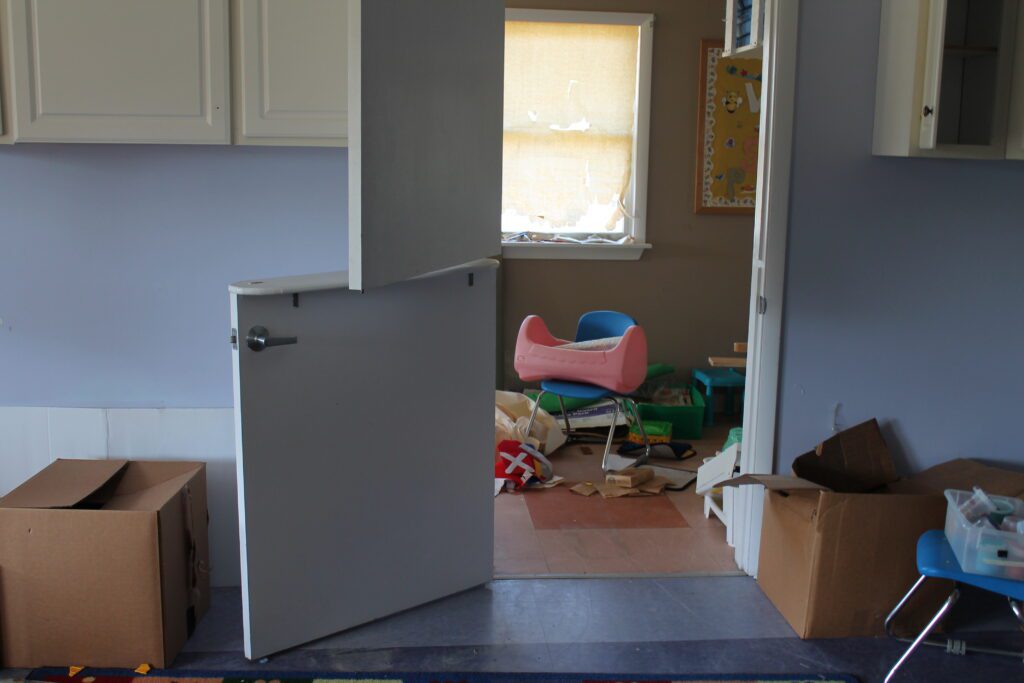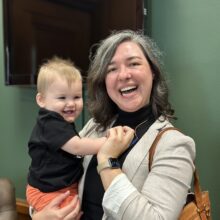A parent’s perspective
Early Bird readers, hello again. Newcomers, welcome! If you were forwarded this email, you can sign up here to receive it every two weeks, and join our conversation on issues facing North Carolina’s young children and those who support them. If you’re already a subscriber, please help us reach more people by sharing this with your friends and co-workers interested in early childhood education.

Back in August, Liz and I heard that the only child care center on Hatteras Island would be closing its doors. As you know, we’ve been keeping close tabs on the overall net losses — and some recent gains — in the number of licensed child care sites the last few years, so we’ve learned a lot about the impact of closures.
But this one hit a little different for me.
I grew up near the Outer Banks, so of course I still feel a personal connection to the community there. That wasn’t it though. What really got me was that this closure is in a geographically isolated community — much like Ocracoke, which lost its only licensed child site back in 2017. Families there don’t have anywhere to turn.
(And let’s be clear: even if they could look for child care in the next town, that would still present an incredible burden, as the folks in western North Carolina experienced when multiple centers closed in October 2023.)
That’s why we’re so grateful to Erin Thomas Trant, a working parent of three young children on Hatteras, for sharing her perspective on the closure with EdNC.
Trant points to staffing shortages as a key reason for the closure, noting that the center couldn’t keep prices affordable for families while also paying qualified staff the family-sustaining wages they deserve. And she highlights that closures like this one issue don’t just harm working parents, but local businesses, community well-being, and most importantly, the children themselves.
I encourage you to read and share her powerful perspective.
We’ve also got a look at the top three priorities to come out of CandL’s three years of research, plus an EdExplainer that breaks down the different types of early care and learning available in North Carolina; send this one to new or expecting parents in your life, because we think it could help them navigate their options.
More from EdNC on early childhood
Perspective | What happens when a community loses its only licensed child care program
This summer, I received a letter that would cause any parent’s head to spin: Leaders at my children’s child care program, Little Sprouts Child Care in Frisco, informed us it will close its doors at the end of the year. ...Three child care priorities emerge from research and advocacy network CandL
Parents want child care they can trust, afford, and access when and where they need it. That’s what a coalition of early childhood advocates found when they asked parents across the state about their needs starting in 2022. That network...There’s a new push to save child care on college campuses
This article was originally reported by Chabeli Carrazana of The 19th. Meet Chabeli and read more of her reporting on gender, politics, and policy. Child care is so expensive for parents in college that it often exceeds the cost of...EdExplainer | Types of early care and learning in North Carolina
For parents of young children in North Carolina, it can be hard to know where to start the search for child care. Rather than having a local public school to rely on, parents must navigate issues of accessibility, affordability, and...The big picture for little kids
News & Research
-
Rural Americans rely on Head Start. Federal turmoil has them worried - From The Hechinger Report
-
STATE OF PLAY: Federal Shutdown and Child Care/Early Learning Programs - From First Five Years Fund
-
Building Bright Futures: How Cities are Funding Public Pre-K in 2025 - From CityHealth
-
With SNAP Cuts, This Federal Food Program May Become a Lifeline For Families - From The 74
-
2025 Prenatal-to-3 State Policy Roadmap - From Prenatal-to-3 Policy Impact Center
-
Child care providers want changes to strict rules that result in costly upgrades, licensing issues - From MPR News
-
Allocating Resources Among Prisons and Preschool: An Analysis of the New Evidence - From American Academy of Political and Social Science
Taking flight! Opportunities to spread your wings
Lead a workshop at the 2026 Smart Start Conference! - From Smart Start
From Smart Start: We want to learn from you!
This is your invitation to lead a workshop at the 2026 Smart Start Conference.
You’ve learned a lot along the way, and our 90-minute workshops are an opportunity for you to share and help others grow in areas like:
- Early Care and Education
- Child, Family, and Community Health
- Family Support and Engagement
- Data, Learning, and Evaluation
- Systems Building and Leadership
- Public Engagement, Advocacy, and Fund Development


